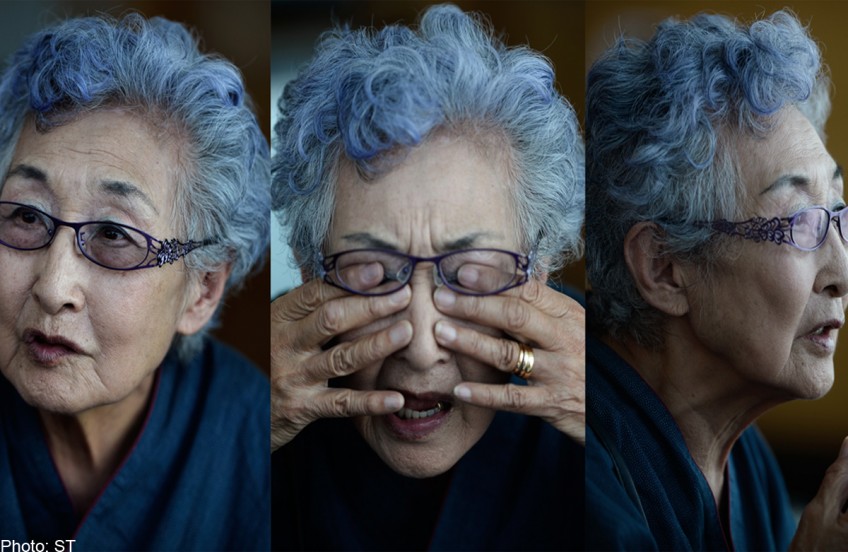Atomic bomb survivors share stories

Red and yellow flashes lit up the morning sky, followed by an ear-shattering bang.
It was Aug 6, 1945, the day an atomic bomb was dropped on the Japanese city of Hiroshima, and Ms Michiko Hattori was then a 16-year-old nurse who had just started work at a military hospital.
"It was a living hell from that day onwards," said the 85-year-old, who later developed lung cancer. One of her granddaughters was also born with a hip deformity, causing her to walk with a waddle.
Ms Hattori was one of eight atomic bomb survivors who came to Singapore on Sunday to share their stories and call for a world without nuclear arms.
About 100 people, from local Japanese to history buffs, crowded the top floor of the National Library Board building to hear first-hand accounts of the hibakusha, or atomic bomb survivors of the Hiroshima and Nagasaki explosions.
Mr Akira Kawasaki of Japanese non-governmental organisation Peace Boat, which organised the event, said they have been getting the survivors to tell their stories since 2008.
"The average age of hibakusha is now over 78 years and the time left to hear it from their own mouths is limited," said Mr Kawasaki.
There are about 220,000 hibakusha alive today. These include not only people injured by the blast, but also those exposed to radiation by "black rain".
The uranium atomic bomb in Hiroshima killed 140,000; a plutonium bomb dropped on Nagasaki killed 74,000.
Ms Hattori recalled the surreal sight of people with their eyes popping out and skin hanging loose. Some had the pattern of their kimono seared into their skin.
The plight of babies also haunts her. She recounted how a mother handed over her newborn, only to realise the baby was headless.
Another tried to breastfeed her baby, but failed because the young one did not recognise her heavily scarred mother and refused milk.
Another survivor, Mr Jongkeun Lee, 86, a second-generation Korean living in Japan, also shared how the burnt wounds on his neck gave him much distress when they became infested with maggots.
These sobering accounts left a deep mark on many in the audience. Student Tan Yu Jia, 17, asked Ms Hattori: "Why is it so difficult for countries to destroy their nuclear weapons?"
She replied with a wan smile: "That's the question I ask myself every single day."

Get a copy of The Straits Times or go to straitstimes.com for more stories.